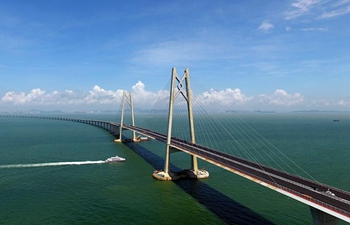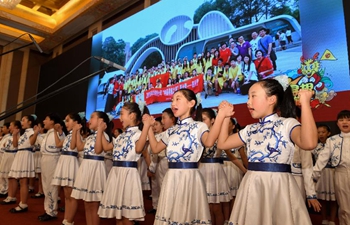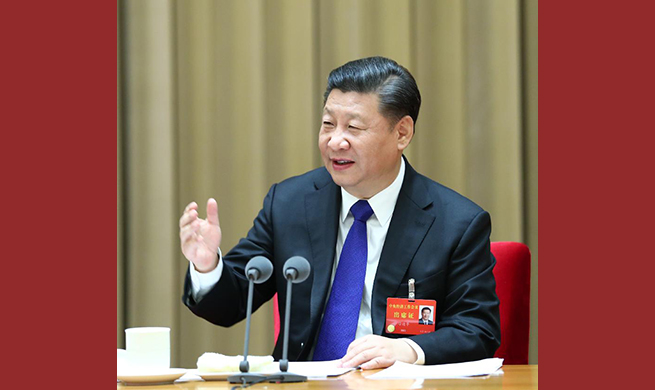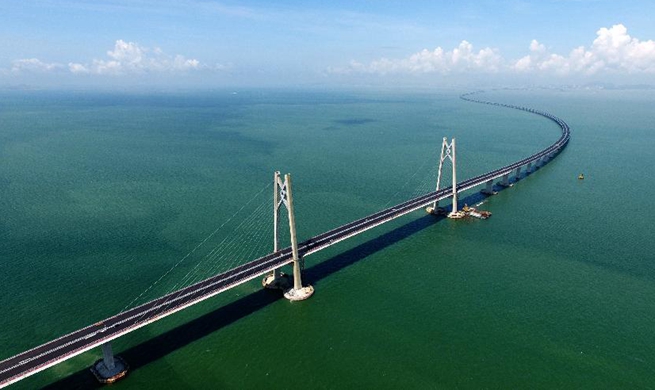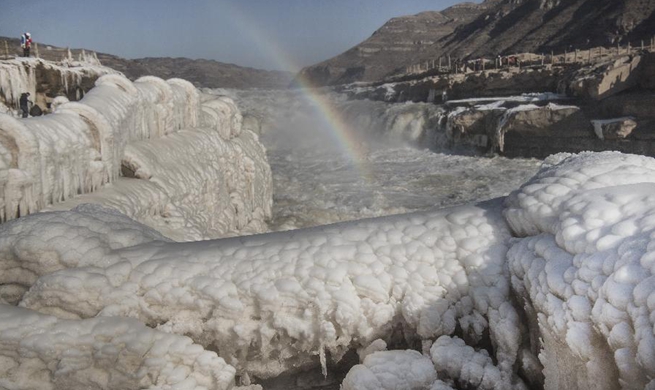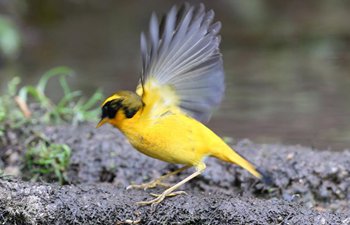TOKYO, Dec. 21 (Xinhua) -- A resolution demanding all U.S. military flights over schools and hospitals be suspended was unanimously adopted by the Okinawa prefectural assembly on Thursday.
The move by the prefectural parliament of Okinawa in Japan's southernmost prefecture follows a window falling from a U.S. military helicopter last week and landing on the grounds of an elementary school narrowly missing children taking a sports class there.
"No more threat to the lives of people in Okinawa should be tolerated," part of the resolution states, with the same message of protest being carried by a number similar resolutions also adopted by municipal assemblies in Okinawa.
The resolution refers to other military-linked accidents in Okinawa, aside from the latest accident involving a military transport chopper, including another CH-53E helicopter crashing and catching fire near the U.S. military's Northern Training Area, just 300 meters away from a residential area in Okinawa in October.
Along with the resolution, a statement of protest was also sent by the assembly to Japanese Prime Minister Shinzo Abe and U.S. Ambassador to Japan William Hagerty highlighting the frequency of U.S. military-linked accidents in Okinawa.
According to the assembly, "a feeling of distrust is mounting among Okinawa people as these incidents vividly illustrate that the U.S. military's measures to prevent similar accidents are not functioning."
The assembly's resolution follows an apology offered by Col. Darin Clarke, from the U.S. Marines' government and external affairs in the Pacific, to Etsuko Kyan, principal of the Futenma Daini Elementary School, where the 8-kg, 1-square meter window landed.
The apology on Monday was made as the U.S. forces told both local government officials and the central government that the cause of the window falling from the chopper was down to "human error," with the verdict causing dismay and refutation among Japanese officials and citizens.
The U.S. forces said the same day that flights of the grounded choppers would be resumed on Tuesday, drawing harsh criticism from Okinawa Governor Takeshi Onaga.
He said the resumption of flights of the CH-53E helicopters was "truly ridiculous" and accused the central government of being "incapable of being involved" as it failed to keep the flights grounded, while slamming the U.S. military as "not a good neighbor."
Japan's Defense Minister Itsunori Onodera said at the time the government had "not received a sufficient explanation about U.S. measures to prevent a repeat of the incident."
The Futenma base itself, to which the chopper involved in the latest incident belongs, is central to an ongoing feud between the central government of Japan and local Okinawan government officials and citizens about its planned relocation to the coastal Henoko region within Okinawa.
Okinawa hosts the bulk of U.S. military bases in Japan, yet represents just a tiny percentage of Japan's land mass. Anti-U.S. sentiment has been increasing on the small, subtropical island, amid rising instances of U.S. base-linked crimes, noise, pollution and military accidents.
On Tuesday, demands were also made by the local council that the central government keep a pact made between Abe and former Okinawa Governor Hirokazu Nakaima to halt the operation of the Futenma air base by February 2019.
But military analysts maintain that while relocating the Futenma base, described by U.S. military experts as one of the most dangerous in the world, may ease concerns of the residents in Ginowan, no fundamental measures have been taken to reduce U.S. military-linked accidents in Okinawa in general.
The same concerns, including those of environmental and noise pollution, would simply be passed on to be shouldered by the residents around Henoko when the new base is built there, analysts said.





